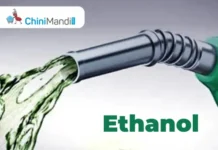The government has initiated discussions with Indian automobile original equipment manufacturers (OEMs) to set new ethanol targets. Major Indian OEMs include Tata Motors, Mahindra and Mahindra and Maruti Suzuki, among others, reported Moneycontrol.
A senior government official informed Moneycontrol that a committee is currently preparing a draft report outlining strategies to raise ethanol blending in petrol beyond the 20 percent mark. He added that once completed, the draft will be submitted for Cabinet approval. The committee includes representatives from the Ministries of Petroleum and Natural Gas, Road Transport and Highways, and Agriculture and Farmers’ Welfare.
“Vehicles in India have been modified to meet the E20 norms (fuel blended with 20 percent ethanol) and most players have the technology available to increase higher blending norms, but the availability of fuel (ethanol) and demand (from customers) are the key factors the government should consider before finalising a (new) deadline,” a senior executive from a Gurugram-based automobile major was quoted as saying by Moneycontrol.
He noted that manufacturing vehicles compatible with E30 fuel could require an additional Rs 15,000 crore in industry investment.
Another executive from a leading automaker echoed similar concerns. He said OEMs are still recovering from the impact of the COVID-19 pandemic and that vehicle sales remain sluggish. Despite this, companies and component manufacturers have already announced investments worth around $11 billion (approximately Rs 95,000 crore) to expand capacity.
“At a time of global uncertainty and geopolitical instability, expecting more investment may be an unrealistic expectation from the government,” the executive added.
Experts noted that modifying vehicles to support ethanol blends beyond 20 percent would require changes primarily in engine and transmission systems, potentially raising vehicle costs by 2.5 to 4 percent. Hemal Thakkar, Senior Practice Leader and Director at Crisil Intelligence, said that changes might be required in exhaust components but primarily in powertrain (engine and transmission) components. Based on our interactions with a few OEMs, the price (of a vehicle) could go up between 2.5 percent and 4 percent for upgrading from E20 to, say, E40 or E45.
According to the government, India’s ethanol initiative is proving transformative, driving economic growth for farmers, generating employment, conserving foreign exchange, and contributing to environmental sustainability. The country’s ethanol programme has boosted farmers’ incomes by Rs. 1,07,580 crore and helped save Rs. 1,26,210 crore in foreign exchange by reducing the need for crude oil imports.


















